Click below to listen to my 2 min. Garden Bite radio show/podcast: Hot weather affects your vegetable garden
Audio PlayerWhew… this heat is really affecting our vegetable gardens. The University of Minnesota Extension notes that some home gardeners are seeing beautiful bushy cucumber plants with no fruit, tomatoes not ripening and beans with few flowers.
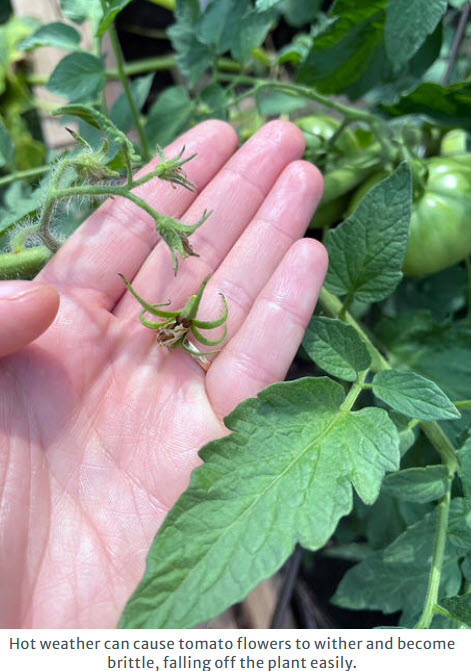
In my own garden I’ve noticed small yields on tomatoes and peppers while my sunflowers are stunted.
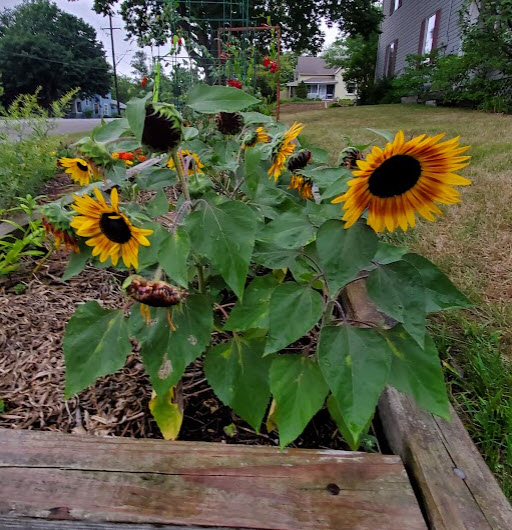
My Grape ‘Juliet’ tomatoes were doing wonderful but now, they are tiny.
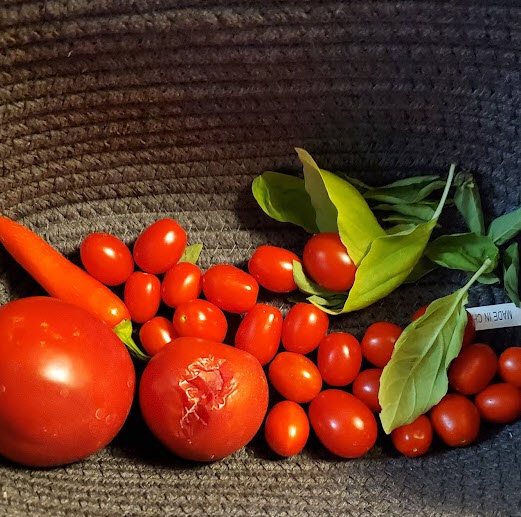
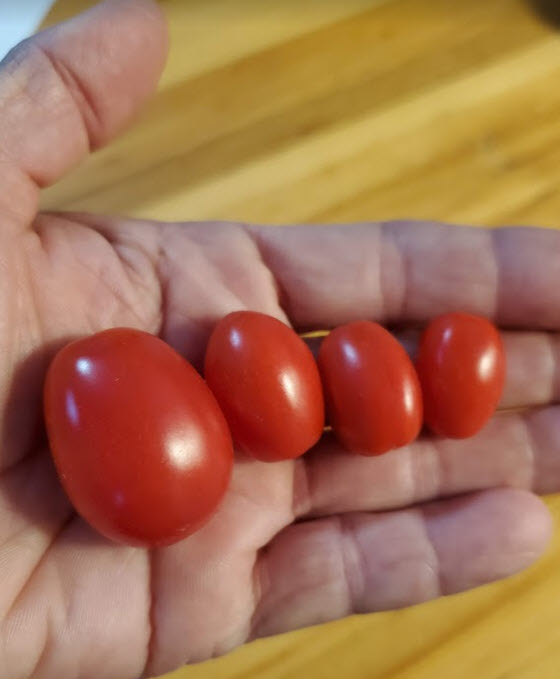
The high temps are affecting our gardens in various ways. When we see our plants struggling we want to help them.
For some that means giving them more fertilizer. This doesn’t really help. Plants are stressed and now you’re trying to make them grow faster. I have talked about fertilizing before. The 411 on fertilizing. And General Hot Weather Fertilizing Tips from the University of MN Ext.
Hot day and night temperatures will also cause flower abortion.
The flowers form but then die and fall off before becoming fruit. This can occur in vegetables and other flowering plants when temperatures range from 75 to 95 degrees. Dropped flowers have been noticeable in tomatoes this year. Tomatoes produce new flowers often, and the flowers have a 50-hour-long window in which to be pollinated. The University of Minnesota Extension continues:
When tomatoes are exposed to sustained hot temperatures (more than 85° F in the day and 70° F at night), the tomato plant becomes stressed and burns through its energy stores. This changes the flowers, making it harder for them to be pollinated, and the blossom often drops out without pollination occurring. So during 50-hour periods that have hot days and especially hot nights, a round of tomato flowers are likely to drop off without pollinating.
Bees aren’t real keen on this heat either.
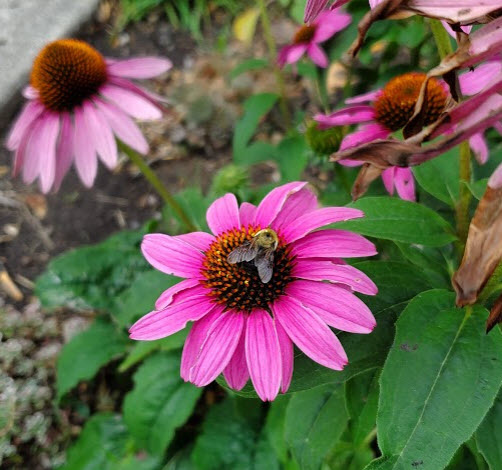
The ideal range for pollination for many species of bees is somewhere between 60° and 90° F, with hotter temperatures in this range promoting more pollination. Once it gets over 90° F, many bees slow down and pollinate less.
This can be especially pronounced in crops like cucumbers, whose small flowers aren’t particularly attractive to many bees. Pollination may occur, but not at a high enough level. This can lead to deformed cucumbers, summer squash and melons. Another issue you may see is poor pollination. Where fruits are forming on those vine crops and then rotting. It may look like disease but it might not be.
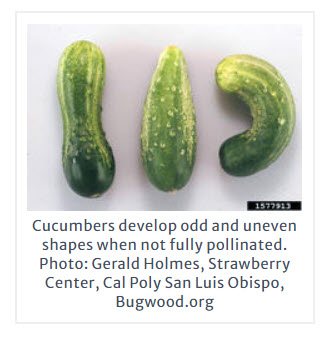
So what can you do? Not much. As I write this my area is getting some rainfall and not the burning sun.
